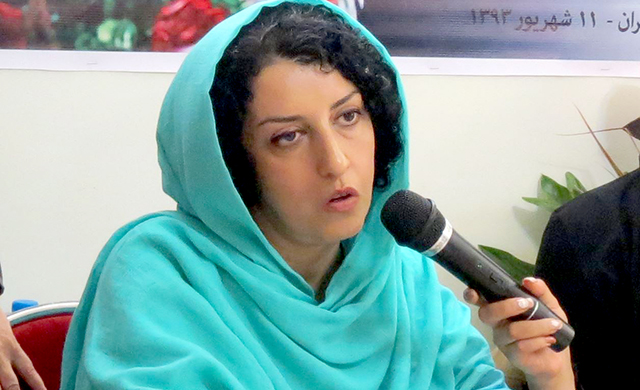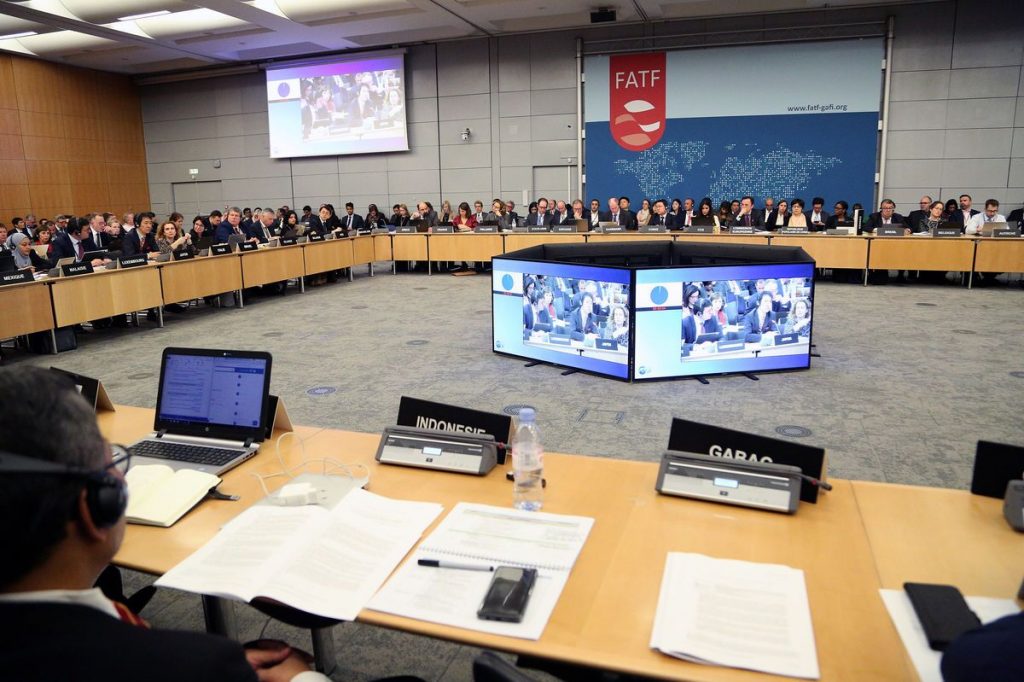
Misunderstanding Reference Groups
The editorial of Etemad penned by “reformist” activist Abbas Abdi underlines that unlike the past, political leaders, also known as reference groups, cannot order people to go to the ballot box to vote.
An important issue in politics is the concept of reference groups. This concept was shaped in the past and its significance is still felt, while with changes in the world, such a phenomenon either does not exist or has become weak.
In the past, political leaders were in a place where their opinions were the last word. People’s relations with them were mostly based on the leader-follower model. Political leaders consulted with their advisors but eventually did and said whatever they wished to. Such a relationship existed during the Iranian revolution between Ayatollah Khomeini and the Iranian people.
A forgotten aspect of those relationships was that leaders paid attention to people’s demands even if they personally disagreed with them. More specifically, leaders became followers of the people because they knew that if they did not do so, they would lose their influence.
Since the 1990s, this phenomenon has become increasingly weaker for different reasons, most important of which is the emergence of social media networks. These social networks have not left any room for the emergence of such leaders. In other words, these individuals and groups have been desacralized, particularly because these social networks have created the idea of celebrities who have no claim to being sacred themselves.
In Iran’s elections, however, some still hold that political authorities can impact people’s actions. In 2013 and 2017, there was this supposition that it was former President Mohammad Khatami’s words that mobilized people to go to the ballot box and vote for a certain individual. What Khatami said was important, but it is wrong to think that people were only waiting for those words to go to the ballot box.
Currently, political leaders cannot even order their own followers to do as they say, let alone mobilize the public.
Today’s world has divested leaders of their authority. The only effective way to persuade the public to participate is by paying attention to their demands and giving them hope. It is up to the government to make people hopeful, which is not that difficult: respect people and their demands, and they will do the rest.
Our Concerns; Your Concerns
The editorial of Hammihan praises the forum held by Iran’s Sociological Association to address people’s real concerns while reprimanding the Iranian authorities who are busy holding ceremonies to award themselves.
This is about the economic conditions in Cuba. Sixty-five years after the revolution, Cuba is now struggling to provide baby formula and as it has failed to do so, this country has resorted to rationing this product, allocating it only to infants with chronic diseases. There are power outages lasting up to 18 hours per day.
Do not the infants and families of the political authorities use baby formula? Or do they use dollars at government rates to buy whatever they need? Undoubtedly, the second response is true.
Now let us turn to Iran. Currently, there are different rates for dollars in Iran. The authorities say that there is still the rate of 4,200 tomans per dollar. Then there is the rate of 28,500 tomans per dollar. And finally, there is the rate of the free market at 57,000 tomans per dollar. And more importantly, there is the issue of instability in the forex price.
This is not just the outcome of the government’s interference in the currency market because there are economies in which governments play a significant role, but they follow the rules of the market and do not squander national capital.
To understand the government’s approach in this regard, suffice to say that huge cultural budgets are spent on useless propaganda and ministers and other officials are busy awarding each other, while people are dealing with important issues that must be resolved.
In the meantime, a civil group in the form of Iran’s Sociological Association recently held a national forum in the cities of Karaj, Kermanshah, Shiraz and Tehran. Some of the topics addressed in the forum included: the sociology of catastrophe, social changes with an emphasis on the development and sociology of the poor, women and collective trends, Afghan immigrant women, women and changes in the motherhood role, the power and agency of women in the family, developments in the family system in Iran, the hijab and cultural politics, and the path of development in Iran.
These were just some of the subjects addressed in the forum which was held to resolve the current issues which exist in the country.
Such civil activities that are focused on understanding the issues of society and people are abundant, although they are frowned upon by officials. When a government looks at its people and elites in this way, it is shooting itself in the foot. If such programs were supposed to be held by the government, there would be a huge squandering of money and then at the end the result would have been announced as confidential!
Warning and Wake-up Call for Officials
The editorial of Jahan Sanat warns that Iranian officials should not close their eyes to the way some candidates for the upcoming parliamentary elections are exacerbating ethnic and tribal differences in some smaller cities to increase the turnout in the elections.
One of the pillars of democracy and for ensuring meaningful electoral competition is the existence of well-established political parties at both the national and local levels. Political parties not only play a role in advancing society and preventing the centralization of power, but also stop the spread of corruption by constantly overseeing government performance. They can influence government policy toward serving people and are powerful forces in upholding the rule of law and freedoms of civil society.
Political parties point to the country’s problems on both national and regional levels, thus introducing meritocracy into the electoral process. The existence of strong political parties leads to the division of labor in making far-reaching national decisions and prevents instability.
Elections also are a practice for strengthening democracy and civil society. Political activists learn that despite their political differences, there are common national goals and objectives.
To increase public turnout in the parliamentary elections, candidates and other groups in certain provinces sometimes adopt dangerous and reactionary stances which have nothing to do with the elections and are in fact against the democratic electoral process. What is happening in certain cities of Khuzestan Province is in contradiction to freedom and democracy.
Candidates and certain groups probably think that by fueling ethnic and tribal differences, they will increase the turnout in the elections, but in fact they are taking society backwards.
Instead of addressing issues like poverty, high prices, inflation, unemployment, education, health, property rights, rule of law, economic prosperity, constructive relations with the world and lifting sanctions; these candidates inflame ethnic and tribal tensions which is not only dangerous, but is an affront to Iranian people’s dignity.
These candidates do not know that they are pitting people against each other while planting the seeds of resentment and enmity which is anti-national, unethical, against democracy and civil liberties.
Iranian officials do not take this issue seriously and even like the idea if it results in a higher turnout in the elections. But they do not pay attention to the long-term effects of such moves which lead to enduring differences and enmity between people.
False Premises of Raisi’s Government and Failure
The editorial of Jahan Sanat explains how the false premises of Ebrahim Raisi’s government have resulted in failure in running the country’s economy.
Philosophers and logicians say that if an individual or a group makes decisions and acts on the basis of false premises, they will sooner or later see the frustrating outcomes of these acts based on false premises.
Raisi’s government took office under special circumstances and started its work based on false premises. The important fact is that this government is founded on weak and flawed foundations. What are these foundations?
Raisi’s government had reached the conclusion that the previous government was incompetent in running the country’s economy. This was a false premise.
Also, Raisi’s government holds that previous government officials had less knowledge and experience and new ideas compared to this government. But a one-to-one comparison of ministers and deputies of both governments proves otherwise.
The other false premise was that Raisi’s ministers supposed that there would be no more conflicts of interest and all political and economic groups would give in to the government’s demands.
Government officials and advocates must unconditionally admit that the decisions made by the government for running the country based on the abovementioned false premises have failed.
The first indicator of the government’s failure is the level of public dissatisfaction with today’s circumstances – a fact that can be proved by any poll in the country.
The second indicator of the failure of Raisi’s government is the inflation rate. The third point to prove that the government has failed in running the country’s economy is that Raisi, as the head of the government, has not fulfilled his promises.
Raisi had promised to construct 4 million housing units in four years, reinvigorate the stock market, find a solution for increasing the level of investment and decreasing the budget deficit – promises that have not been fulfilled and are signs of the government’s failure.

“Boycotting Elections Is Our Political and Moral Duty,” Says Imprisoned Nobel Peace Laureate

Imprisoned Nobel Peace Laureate Narges Mohammadi is boycotting Iran’s upcoming elections, calling them “sham” elections.
“Boycotting the sham elections of this tyrannical religious regime is the duty of freedom and justice seekers in Iran, not only politically but also morally,” said Mohammadi in a statement published on social media.
Mohammadi added that she would stand with the Iranian people in boycotting such elections “to announce the illegitimacy of the Islamic Republic regime.”
Lambasting the Iranian government’s brutal suppressive measures, she referred to the killing of young protesters on the streets or sending them to the gallows, noting that this ruling system “deserves a national boycott and a global humiliation.”
“Transition from this tyrannical religious regime is a national demand and the only way through which Iran, Iranians and our humanity can survive,” concluded Mohammadi.
Even though Supreme Leader Ali Khamenei has repeatedly urged people to go to the ballot box, many individuals, including former officials as well as political and civil activists both in Iran and abroad, have boycotted the imminent elections.
Ex-politician and current prisoner Mostafa Tajzadeh published a letter from Tehran’s Evin prison in which he held Khamenei responsible for the “faulty structure” of Iran’s political system, saying that Khamenei has “made elections meaningless and elective institutions, especially the Parliament, ineffective.”
Advising the “reformists” against participating in the elections, Tajzadeh said, “Introducing a candidate or trying to form a reformist faction is only useful when the Parliament is at the head of affairs, not the country’s supreme leader.”
This former senior member of the Islamic Iran Participation Front pointed out that Khamenei has closed his eyes to “Iran’s catastrophic realities,” refusing to hear the protest of millions of citizens.
The sixth Assembly of Experts elections and the 12th parliamentary elections are to be held on March 1.
Iran Remains on FATF Blacklist

The Financial Action Task Force (FATF) recently announced that Iran is going to remain on this group’s money laundering list.
This group’s statement asserts that Iran and North Korea will remain on its blacklist, asking other member countries to adopt additional and necessary monitoring measures regarding these two countries.
According to this statement, Iran in its January 2024 report has made no changes in its measures and procedures.
The FATF added that the Iranian government had committed in 2016 to fixing its strategic shortcomings in its rules and laws. But Iran’s deadline for ratifying the related laws ended in 2018.
Since October 2019, the FATF has warned its members to take additional necessary measures in their transactions with Iran and is still worried about the financing of terrorism through Iran.
The FATF in its statement clarified that Iran will remain on its blacklist until these shortcomings are fixed.
In 2020, the members of the Expediency Discernment Council opposed the review of the FATF bills which was placed on its agenda due to the persistence of former President Hassan Rouhani.
Those in the Iranian government who are against ratifying the FATF bills say that if ratified, these bills will obstruct Iran’s financial aid to its proxy militias like the Lebanese Hezbollah.
Following the Iranian government’s refusal to ratify these bills, the FATF re-blacklisted Tehran and has authorized all countries to act directly in their transactions with Iran.
Iranian Finance and Economic Affairs Minister Ehsan Khandouzi recently claimed that the government had succeeded in taking measures that would mean a decrease in the risk of other countries doing business with Tehran.
In light of the fallouts of Iran remaining on the FATF blacklist, economists have stressed that the Iranian government has sacrificed the country’s economy for its divisive policies in the region. Also, it has been repeatedly stated that in case these bills are ratified, the IRGC and Quds Force will face pressure with regard to their money laundering, smuggling and illegal trade operations.
The Iranian government continues to double down on its policies, the main outcome of which has been increasing levels of poverty. Each day, people struggle to earn a living and meet their basic needs.
Cold and Snow in Iran; Schools and Government Offices Closed Due to Gas Shortage

As many provinces in Iran are struggling with snow, rain, blizzard and ice, schools and government office were closed in some provinces including Northern Khorasan.
The Energy Management Task Force in Northern Khorasan stated that schools and government offices should be closed in this province on Monday to manage gas consumption.
In Tehran Province, the head of the Crisis Management Office also warned that if restrictions on gas consumption are not implemented, there will be gas shortages in certain areas.
Iran National Gas Company too issued a statement calling for the efficient management of gas consumption in the provinces of Tehran, Gilan, Alborz, Southern Khorasan, Razavi Khorasan, Northern Khorasan, Mazandaran, Golestan, Ardabil, Western Azerbaijan and Eastern Azerbaijan.
The statement also warned that if the recommendations regarding gas consumption are disregarded, LNG (liquified natural gas) might be cut off in powerplants which will result in power outages in residential areas.
Although Iran has 32 trillion cubic meters of gas reserves and claims that has the second largest natural gas reserves in the world, the severe shortfall between supply and demand continues to intensify year after year.
According to the Parliament’s Research Center, the level of the gas deficit surpassed 300 million cubic meters per day last year.
Because of the severe gas deficit in winter and the necessity of providing gas for homes, the Iranian government has turned to using mazut in powerplants and cutting gas supplies in industrial facilities and government offices.
Despite accurate satellite forecasts and regional maps released by international meteorological centers each year, a major part of Iran has to face shutdowns because high-ranking officials are “taken by surprise” in winter every year.
IAEA: Iran Has Reduced Its High Levels of Uranium Enrichment in the Past 3 Months

The International Atomic Energy Agency announced that Iran has decreased its stockpile of 60%-enriched uranium in the past three months.
Based on a new nine-page report provided by IAEA Secretary General Rafael Grossi on February 26, Iran’s uranium stockpile has decreased by 5% in comparison with November 2023.
The reduction could signify that the Iranian establishment has decided to defuse tensions between its proxy groups and the United States and its allies.
Grossi had previously declared that although Iran continues to produce 60%-enriched uranium, it seems that it has reduced its enrichment speed since the beginning of the recent war in the Gaza Strip.
It is notable that the IAEA simultaneously raised the alarm about Iran’s stockpile of enriched uranium reaching more than 27 times the limit agreed upon in the JCPOA back in 2015.
According to AFP, a confidential report by the UN nuclear watchdog stated that Iran’s total enriched uranium stockpile was estimated at 5,525.5 kilograms as of February 10, showing a 1,038.7 kilogram increase in comparison to the quarterly report published in November 2023.
The same report not only reveals that Iran has 121.5 kilograms of uranium enriched up to 60% purity and more than 712 kilograms of enriched uranium up to 20% purity, but also refers to the UN nuclear watchdog’s growing concerns over Iran’s increasing technical capabilities for producing nuclear weapons.
